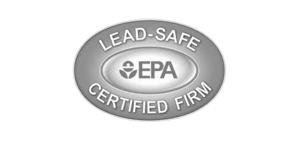Mold is a type of fungus that can grow both indoors and outdoors, and exposure to it can cause various health problems. One of the most significant dangers of mold exposure is mold poisoning, which can manifest in many different ways. If you suspect mold poisoning, it’s essential to be able to recognize the signs and symptoms promptly.
In this section, we’ll explore the various signs of mold poisoning that you should be aware of. Knowing what to look for can help you take early action to mitigate the health risks associated with mold exposure.
Key Takeaways:
- Mold poisoning is a serious health concern that can have numerous signs and symptoms.
- Early detection of mold poisoning signs is crucial for taking appropriate measures to address the issue.
- You can protect your health from the harmful effects of mold by recognizing the signs of mold poisoning and taking preventative measures.
- If you suspect mold poisoning, it’s recommended to consult a medical professional and conduct a thorough mold inspection in your living or working environment.
- Mitigating potential health risks from mold exposure should be a top priority.
Understanding Mold Poisoning
If you suspect mold poisoning, it’s essential to understand what it is and how it can affect your health. Mold poisoning occurs when you inhale or come into contact with mold spores that produce harmful toxins. The severity of the health effects of mold exposure can vary depending on the individual’s sensitivity, type of mold, and duration of exposure.
Mold can cause a range of health problems, from mild symptoms like headaches and coughing to severe respiratory conditions and neurological damage. These health effects can be debilitating and, in some cases, life-threatening. Therefore, it’s crucial to take mold exposure seriously and take steps to prevent it.
There are various health effects associated with mold poisoning, including:
- Respiratory problems, such as coughing, wheezing, and shortness of breath.
- Allergic reactions, including sneezing, runny nose, itchy eyes, and skin rashes.
- Neurological symptoms, like headaches, memory problems, and mood changes.
- Other symptoms, including fatigue, nausea, and dizziness.
Long-term exposure to mold can also lead to more severe and chronic health issues, such as asthma, bronchitis, and even cancer.
It’s important to note that not everyone who is exposed to mold will experience symptoms of poisoning. Some people are more sensitive to mold than others, and the severity of symptoms can depend on several factors. If you suspect that you may have been exposed to mold, it’s important to monitor your health and seek medical attention if necessary.
Respiratory Symptoms
One of the most common sets of symptoms associated with mold poisoning are respiratory symptoms. Mold spores easily become airborne, making them easy to inhale. If you’re frequently exposed to mold, you might develop:
- Coughing
- Wheezing
- Shortness of breath
- Sinus congestion
These respiratory symptoms can be particularly dangerous for individuals with pre-existing respiratory conditions, like asthma or chronic obstructive pulmonary disease (COPD). Mold-related respiratory issues that go untreated can even lead to the development of those conditions.
If you notice any respiratory symptoms, it’s important to take action quickly to avoid further health complications.
Allergic Reactions: How Mold Allergies Can Indicate Mold Poisoning
If you have mold allergies, exposure to mold can trigger a range of allergic reactions that can indicate mold poisoning. Allergic reactions occur when your immune system overreacts to the presence of mold, releasing chemicals such as histamine into your body that cause symptoms.
Common allergic reactions to mold include:
- Sneezing
- Runny or stuffy nose
- Coughing
- Itching eyes, nose, and throat
- Watery eyes
- Skin rash or hives
These symptoms may be mild or severe, depending on the level of mold exposure and your individual sensitivity. If you experience these symptoms, it’s important to consult a medical professional to rule out mold poisoning and receive proper treatment.
To prevent mold allergies and potential mold poisoning, it’s essential to keep your living or working environment clean and dry. Regularly clean and ventilate areas that are prone to moisture, such as bathrooms and kitchens, and promptly fix any leaks or water damage. Additionally, consider using an air purifier with a HEPA filter to reduce the number of airborne mold spores.
Neurological and Cognitive Symptoms
Exposure to mold can result in various neurological symptoms that affect cognitive function and overall well-being. The severity of these symptoms depends on the type of mold, duration of exposure, and individual susceptibility.
One of the most common neurological symptoms associated with mold poisoning is headaches. These can range from mild to severe and may be accompanied by dizziness or vertigo.
Memory problems and difficulty concentrating are also cognitive effects of mold exposure. You may experience forgetfulness, difficulty recalling recent events, or trouble focusing on tasks. These symptoms can be especially concerning for those who work in jobs that require high levels of mental acuity, such as pilots, drivers, or surgeons.
In some cases, mold exposure can also lead to mood changes. You may feel anxious, irritable, or depressed without an apparent reason, which can significantly impact your quality of life.
It is crucial to seek medical attention if you experience any of these neurological and cognitive symptoms, especially if they persist or worsen over time.
Conclusion
In conclusion, it’s crucial to recognize the signs and symptoms of mold poisoning to protect your health. Mold toxicity can cause a range of health effects, from respiratory issues to neurological symptoms. If you suspect mold poisoning, consult a medical professional and conduct a thorough mold inspection to mitigate potential health risks. Taking preventative measures, such as reducing humidity levels, fixing leaks, and regularly cleaning and maintaining your living or working environment, can also help prevent mold growth. Your health should always be a top priority, and by staying informed and taking action when necessary, you can protect yourself from the harmful effects of mold poisoning.
FAQ
What are the signs of mold poisoning?
Signs of mold poisoning can vary but may include respiratory symptoms such as coughing, wheezing, shortness of breath, and sinus congestion. Allergic reactions such as sneezing, itching, watery eyes, and skin rashes are also common. Additionally, mold poisoning can cause neurological symptoms such as headaches, memory problems, difficulty concentrating, and mood changes.
What is mold poisoning?
Mold poisoning, also known as mold toxicity, occurs when individuals are exposed to high levels of mold spores or mycotoxins produced by certain molds. It can have various health effects and symptoms ranging from mild to severe.
How does mold poisoning affect your health?
Mold poisoning can have detrimental effects on your health. The inhalation or ingestion of mold spores or mycotoxins can lead to respiratory issues, allergic reactions, neurological symptoms, and other health problems.
What are the different types of mold commonly found in indoor environments?
There are several types of mold commonly found indoors, including but not limited to, Aspergillus, Penicillium, Cladosporium, and Stachybotrys (also known as black mold). These molds can thrive in damp or humid environments, such as basements, bathrooms, and areas affected by water damage.
How can I recognize if I have mold poisoning?
Recognizing if you have mold poisoning can be challenging as symptoms can be similar to other health conditions. However, if you experience persistent respiratory symptoms, allergic reactions, or neurological/cognitive issues that seem to improve when you are away from a particular environment, it may be worth considering mold poisoning as a possible cause.
What should I do if I suspect mold poisoning?
If you suspect mold poisoning, it is recommended to consult a medical professional for an accurate diagnosis. They can evaluate your symptoms, perform relevant tests, and provide appropriate treatment or referrals. It is also advisable to conduct a thorough mold inspection in your living or working environment to identify and address potential sources of mold.
How can I protect myself from the harmful effects of mold?
To protect yourself from the harmful effects of mold, it is essential to control moisture levels in your home or workplace. This includes promptly addressing any water leaks or dampness, ensuring proper ventilation, and using dehumidifiers if necessary. Regularly cleaning and drying areas prone to mold growth can also help prevent its accumulation. If you suspect mold, consider hiring a professional mold remediation service to safely remove it.





















